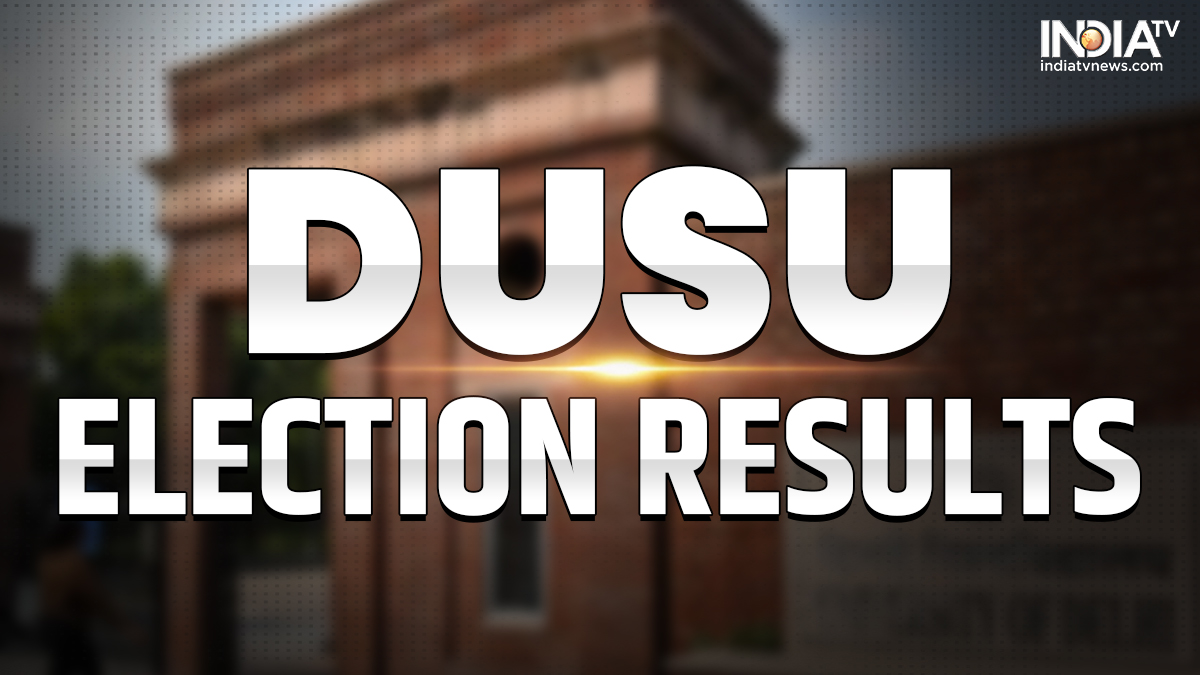


After facing a delay due to a court order, the results of Delhi University's Student Union (DUSU) elections have finally been announced. In a close competition between the two major parties, NSUI has emerged victorious in the President and Joint Secretary positions, while ABVP has managed to secure Vice President and Secretary positions. This marks a revival of NSUI's presence in the influential student body after seven years, signaling a possible shift in the political landscape of DU.
NSUI Triumphs in DUSU Elections, Ending Seven-Year Hiatus
After a prolonged delay due to a court order, Delhi University's Student Union (DUSU) election results have been announced, marking a significant shift in the political landscape of the university. The National Students' Union of India (NSUI), the student wing of the Indian National Congress, has emerged victorious in the President and Joint Secretary positions, while the Akhil Bharatiya Vidyarthi Parishad (ABVP), the student wing of the Bharatiya Janata Party, has secured the Vice President and Secretary positions.
Background
The DUSU elections are the most prestigious student body elections in India, with a significant impact on the national student political scene. The four primary positions in DUSU—President, Vice President, Secretary, and Joint Secretary—are hotly contested by students from various political parties and independent candidates.
In recent years, ABVP has dominated DUSU, winning elections for six consecutive years. However, in this election, NSUI managed to break that streak, ending ABVP's monopoly on student leadership in DU.
NSUI's Resurgence
NSUI's victory marks a revival of its presence in the university. After losing control of DUSU in 2015, the party had struggled to regain its footing in the student body. However, this election result signals a possible shift in the political landscape of DU, with NSUI emerging as a viable challenger to ABVP.
Election Results
The final results of the DUSU elections are as follows:
Top 5 FAQs and Answers
What is the significance of NSUI's victory? NSUI's victory ends ABVP's six-year dominance of DUSU and signals a possible shift in the political landscape of DU.
What issues were at stake in the election? Students voted on issues such as campus safety, academic reforms, and representation of marginalized communities.
What are NSUI's plans for DUSU? NSUI has pledged to work on improving campus infrastructure, promoting academic excellence, and addressing the needs of marginalized students.
What is the history of DUSU elections? DUSU elections have been held for over six decades, serving as a platform for student activism and political engagement.
What is the impact of DUSU elections on national politics? The DUSU elections are often seen as a barometer of national political trends, with the results influencing the youth vote in larger elections.

Prime Minister Narendra Modi celebrated Diwali 2025 with Indian Navy personnel aboard the indigenous aircraft carrier INS Vikrant, highlighting the ship's strength and psychological impact on adversaries. Commissioned in 2022, the carrier is a symbol of India's self-reliance and strategic resolve. PM Modi praised the bravery and dedication of the naval personnel, reinforcing the bond between the armed forces and the government.

The Allahabad High Court has directed the Jailer of Hisar Central Jail in Haryana to provide an explanation on how self-styled Godman Sant Rampal, currently held in the jail, is able to write and distribute books that allegedly target Hindu deities. This comes after a plea was filed by Hindu Front for Justice, calling for a ban on the books and action against Rampal. The petition alleges that the books contain offensive and provocative language and have been distributed through electronic communication platforms, causing disharmony between religious communities.

Following the latest string of scandals involving Prince Andrew, King Charles was photographed attending a Sunday morning service near his Scottish estate. The King wore a solemn expression as he drove to Crathie Kirk, displaying tension amidst a tumultuous time for the royal family. Recently, Prince Andrew announced his resignation from the Duke of York and membership of the Order of the Garter, the oldest chivalric order in the UK.

The nation's political leaders, including Prime Minister Modi, President Murmu, and Union Minister Amit Shah, took to social media to extend their warm wishes to the country on the occasion of Diwali. They highlighted the significance of the festival and urged people to celebrate it responsibly and with mutual love and harmony. EAM Jaishankar also wished everyone a happy and prosperous Diwali.

GB News journalist Nana Akua and royal fans are calling for King Charles to follow in Prince Andrew's footsteps and strip Prince Harry and Meghan Markle of their royal titles. This comes after the Duke of York voluntarily gave up his titles in light of the ongoing scrutiny surrounding his association with Jeffrey Epstein. Nana Akua ridiculed Meghan Markle's business ventures and urged the King to take away her Duchess of Sussex title in order to prevent her from setting foot in the UK again.

During a speech for Deepotsav 2025 celebrations in Ayodhya, Uttar Pradesh Chief Minister Yogi Adityanath criticized the opposition for denying Lord Ram's existence and obstructing the Ram Janmabhoomi Temple movement. He specifically called out the Congress for submitting an affidavit to the Supreme Court calling Lord Ram a myth and accused the Samajwadi Party of firing bullets at Ram devotees. Adityanath also emphasized the determination and resilience of the movement, which began in 1949 with the resolution "Ram Lalla Hum aayenge, Mandir wahin banayenge" and continues to this day.

Activists and advocacy groups staged massive demonstrations across the country in response to what they see as President Trump's abuse of power. With signs protesting policies such as mass deportations and the federal government shutdown, protestors showed a fierce love for their country. Though there were no reports of violence or arrests, Republicans labeled the demonstrations as "hate America" rallies. Organizers estimate that nearly 7 million people participated in over 2,700 cities and towns throughout the U.S., making it one of the largest reported one-day protests in American history.

With the 2025 Assembly Elections in Bihar on the horizon, the state's Araria constituency is gearing up for an intense revision of its electoral roll. This decision by the Election Commission aims to ensure that all eligible citizens are registered to vote in the upcoming elections. In the last election, the Congress emerged victorious in the constituency, but with no candidates declared yet, all eyes are on the official schedule for the 2025 Bihar Assembly Elections.

The Bharatiya Janata Party (BJP) in Andhra Pradesh marked Dhanvantari Jayanti with a colorful rally and speeches highlighting social inclusion, cultural heritage, and development. Leading state and district leaders, including BJP State president PVN Madhav, addressed the gathering and emphasized the party's commitment to equal respect for all religions and welfare initiatives for marginalized groups. At another event, Telangana BJP president Ramachandra Rao endorsed a proposed reservation for backward classes in Telangana and criticized the Congress and other parties for corruption while touting BJP's claim of clean governance.

Defence Minister Rajnath Singh, while flagging off the first batch of BrahMos missiles in Lucknow, warned Pakistan that their entire territory is now within range of India's powerful missiles. Singh also highlighted the success of Operation Sindoor, stating that it was just a glimpse of India's growing capabilities. The minister emphasized that BrahMos serves as a symbol of India's strategic confidence and is a key pillar of the country's defence forces.